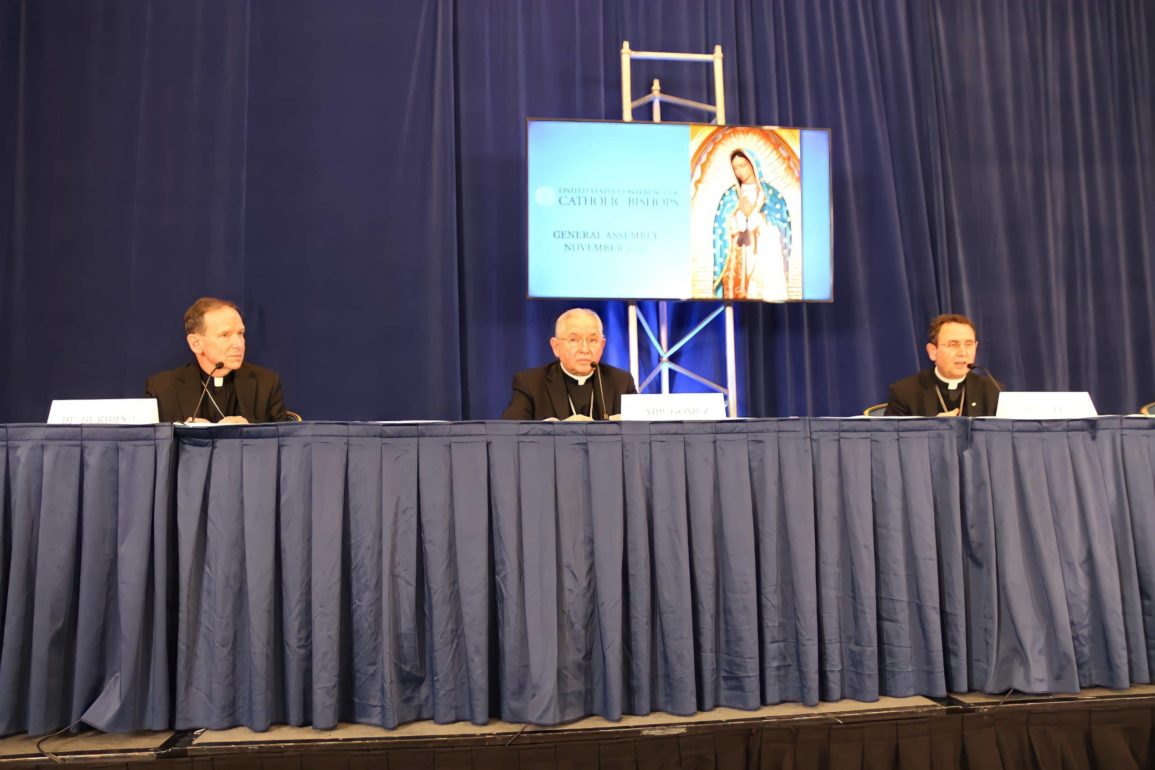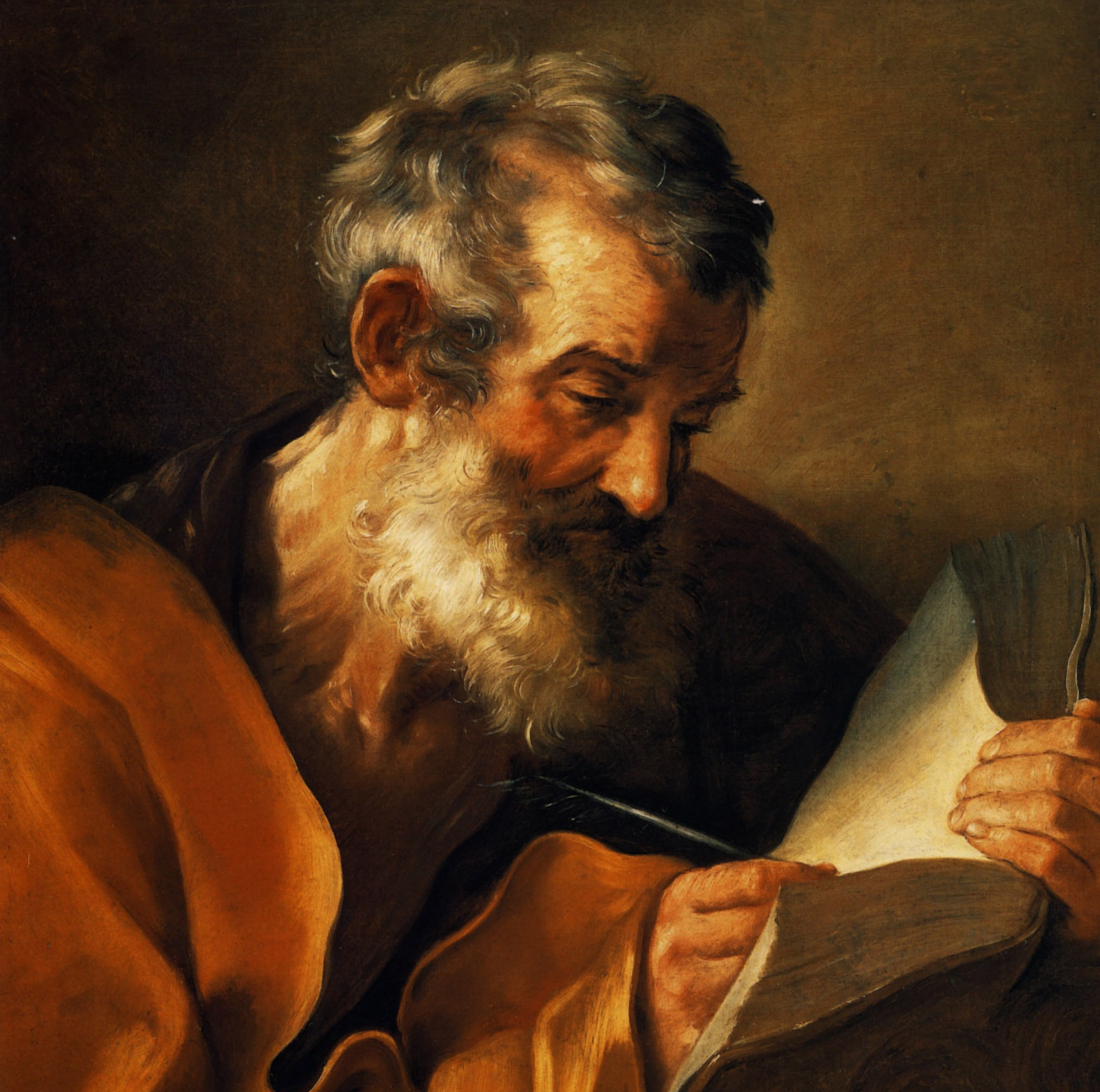Enrique Soros, a social communicator, and collaborator of Exaudi offers this article on the General Assembly of the US Bishops in Baltimore and highlights some of the topics to be addressed, among them, the Eucharist, synodality, abortion, and the poor.
* * *
Document on the Eucharist
The Assembly of the Bishops of the United States is in full session in the city of Baltimore, as happens every year in their fall general meeting. Although the latter began on Monday, it was open only yesterday to journalists and observers. The problem is that for several months the U.S. Bishops have been discussing a document on the Eucharist, which is about to see the light and should express clearly the impossibility of a politician, who openly accepts abortion, to receive Communion, as is the case of President Joe Biden.
The idea to meet in private on Monday was to avoid exposing before the outside world the different positions, sometimes opposed, of the Bishops in regard to this topic. However, it seemed that an agreement was being reached, not to mention expressly in writing the impossibility that politicians that accept abortion receive Communion, a fact that would foster the unity of the body and of the Church herself in the United States. It should be noted that the Episcopal Conferences do not have power in the dioceses, as every Bishop is the highest authority in his territory. In this case, Cardinal Wilton Gregory, Bishop of Washington, has already said that he would not deny Communion to President Biden.
Nuncio Christophe Pierre on the Importance of the Synodal Journey
In his key address, the Nuncio in the United States, Archbishop Christophe Pierre, addressed the Bishops on the importance of the synodal journey. In this connection, he pointed out that “it’s understandable that many have doubts about the Synod because we’re not used to taking part in synodal processes. The conversion that the process triggers, especially of our mentality, can leave us “vulnerable” but in a better place.”
There Are Positions that Are Removed from Reality
The Nuncio went on to ask: “Why talk about synodality? And he responded by saying: “I believe synodality is an answer to the challenges of our time and to the confrontation that threatens to divide this country, and which also has its echoes in the Church. It seems that many aren’t aware that they are immersed in this confrontation, taking positions that are rooted in certain truths, but which are isolated in the world of ideas and are not applied to the reality of the experience of faith lived by the People of God in their concrete situations.”
“In his homily on the Day of the Poor, last Sunday, Pope Francis said: ‘We are part of a history marked by tribulation, violence, suffering, and injustice, always waiting for a liberation that never seems to come. The most wounded, oppressed and even crushed, are the poor, the weakest links in the chain,” he continued.
On the Fight Against Abortion: A Positive Perspective
In regard to the fight against abortion, Nuncio Pierre said: The Church must be unabashedly pro-life. We cannot abandon our defense of innocent human life or of vulnerable individuals. However, a synodal approximation to the question would be to understand better why people seek to end pregnancies; what are the profound causes of choices against life and what are the factors that make those options be so complicated for some, and begin to form a consensus with concrete strategies to build the culture of life and the civilization of love.”
The Eucharist Is Not for a Privileged of the Few
In regard to the Eucharist, a burning topic in the Church of the United States, Nuncio Pierre said that “the realities are more important than the ideas. We can have all the theological ideas about the Eucharist, and, of course, we need them, but none of those ideas can be compared with the reality of the Eucharistic Mystery, which needs to be discovered and rediscovered through the Church’s practical experience, living in communion, especially in this time of pandemic.”
“We can concentrate a lot on the sacredness of the Liturgy and lose the true encounter with His Real Presence. The temptation exists to treat the Eucharist as something that is offered to a privileged few, instead of trying to walk with those whose Theology or discipleship is insufficient, helping them to understand and appreciate the gift of the Eucharist and helping them to overcome their difficulties. Instead of remaining in an ‘ideology of the sacred,’ synodality is a method that helps us to discover together a path to follow,” he added.
Elections: New Secretary-General and Presidents-Elect of Commissions
Yesterday the Bishops elected a new Treasurer of the Conference and Presidents of five Permanent Committees. The elected Bishops will serve for a year as Treasurer-Elect or as President-Elect of a Committee, before beginning a three-year mandate that will be initiated at the conclusion of the General Assembly of the Bishops in the fall of 2022. The Bishops also elected three members of the Board of the Catholic Relief Services (CRS), and the Secretary-General of the Conference.
Bishop James F. Checchio, of Metuchen, was elected Treasurer-Elect and President-Elect of the Budget and Finance Committee. Bishop Earl A. Boyea, of Lansing, was elected President-Elect of the Commission of the Clergy, Consecrated Life and Vocations. Bishop Steven J. Lopes, of the Personal Ordinariate of the Chair of Saint Peter, was elected President-Elect of the Divine Worship Commission. Archbishop Borys Gudziak of the Ukrainian Catholic Archdiocese of Philadelphia is the President-Elect of the Committee of Domestic Justice and Human Development. Bishop Robert Barron, Auxiliary of Los Angeles, was elected President-Elect of the Committee of the Laity, Marriage, Family Life and Youth. Bishop Mark Seitz of El Paso is the President-Elect of the Migration Committee and The Revered Michael J. K. Fuller, STD, was elected Secretary-General of the USCCB, The Secretary General’s mandate is for five years.
Moreover, three members of the Executive Board of Catholic Relief Services were elected from a list of four candidates. They are, in alphabetical order, Archbishop Timothy P. Broglio, Bishop Donald J. Hying, and Bishop Oscar A. Solis.
Tuesday’s addresses at the General Assembly may be read here.
Translation by Virginia M. Forrester










